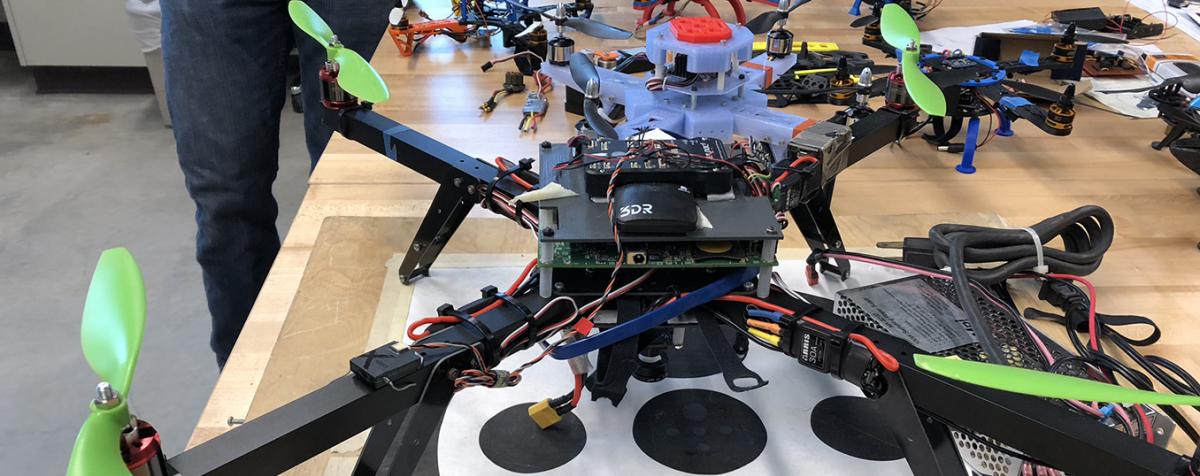Department of Computer Engineering

About
Today, employing computers to solve different problems in various aspects of human life has become a necessity in the developed and developing countries, and hence, graduates in computer engineering play an important role in this field.
The Department of Computer Engineering was established in 2007 and officially began admitting undergraduate students in two majors, “Software” and “Hardware”. The department’s graduate studies program was initiated by the introduction of the “Software Engineering” MS major in 2011; the program was later expanded through the introduction of the “Computer Architecture” MS major in 2016.
The department continuously updates its research programs and course syllabi, enhances the academic and practical quality of the faculty and advances knowledge boundaries according to the latest advances in this rapidly evolving field.
Facilities and Equipment
Heading Example
A paragraph is a self-contained unit of a discourse in writing dealing with a particular point or idea. Paragraphs are usually an expected part of formal writing, used to organize longer prose.
Go SomewhereHeading Example
A paragraph is a self-contained unit of a discourse in writing dealing with a particular point or idea. Paragraphs are usually an expected part of formal writing, used to organize longer prose.
Go SomewhereHeading Example
A paragraph is a self-contained unit of a discourse in writing dealing with a particular point or idea. Paragraphs are usually an expected part of formal writing, used to organize longer prose.
Go Somewhere-
TeachingTeaching
-
ResearchResearch Groups
Software
Software engineering is a systematic engineering approach to software development. A software engineer is a person who applies the principles of software engineering to design, develop, maintain, test, and evaluate computer software. The term programmer is sometimes used as a synonym, but may also lack connotations of engineering education or skills.
Computer Architecture
In computer engineering, computer architecture is a set of rules and methods that describe the functionality, organization, and implementation of computer systems. The architecture of a system refers to its structure in terms of separately specified components of that system and their interrelationships.
Artificial Intelligence
Artificial intelligence (AI) is intelligence demonstrated by machines, as opposed to the natural intelligence displayed by animals including humans. AI research has been defined as the field of study of intelligent agents, which refers to any system that perceives its environment and takes actions that maximize its chance of achieving its goals.
Laboratories
To conduct graduate study and research on various aspects of computer engineering, the department is equipped with a substantial number of specialized research laboratories directed by faculty members. A number of these laboratories are listed below.
Natural language processing (NLP) – Dr. Mirrosahndel
Enterprise architecture (EA) – Dr. Ahmadifar
Internet of Things and Smart Systems Laboratory (IoTSSL) – Dr. Salehi
Research Areas
To facilitate in-depth practical study of different aspects of computer engineering, several educational laboratories are devoted to providing hands-on laboratory experience to undergraduate and graduate students. A number of these laboratories are listed below.
Algorithms and Computations
Architectural Support for Emerging Technologies
Circuit and VLSI Design
Cloud and Green Computing
Data Mining
Database Systems
Dependability and Fault-Tolerant Systems
Distributed and Pervasive Computing
Electronic Design Automation and HW/SW Co-design
Embedded and Real-time Systems
Hardware Security
Hardware Test and Testability
High Performance Computing and Parallel Processing
Image and Video Processing
Low-Power Design
Machine Learning
Micro-architecture and Multicore Processors
Natural Language Processing (NLP)
NoC, SoC, and Interconnection Networks
Operating Systems
Reconfigurable Computing
Security, Privacy, and Cryptography
Smart Buildings (Cyber-Physical Systems)
Social Networks
Software Engineering
Systems and Networking -
PublicationPublication




















